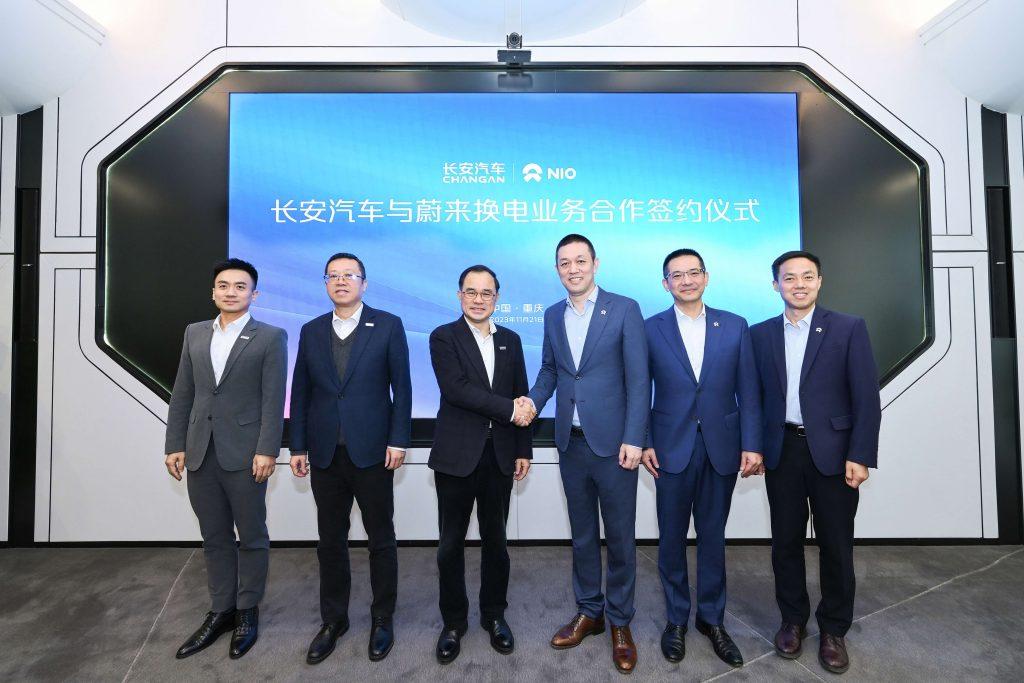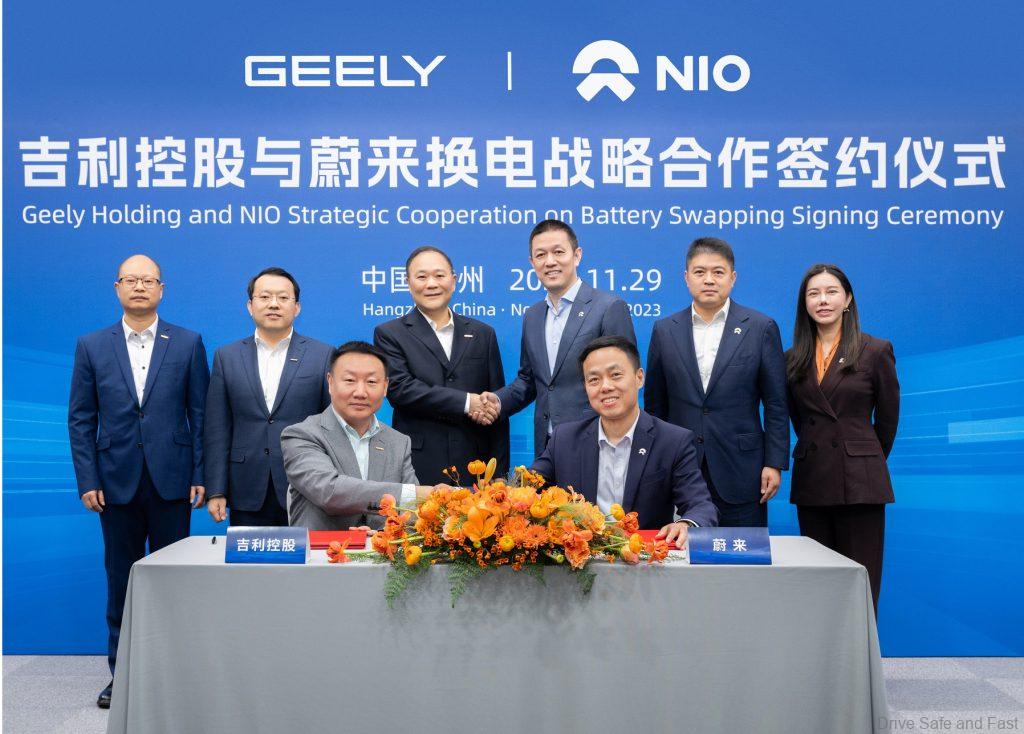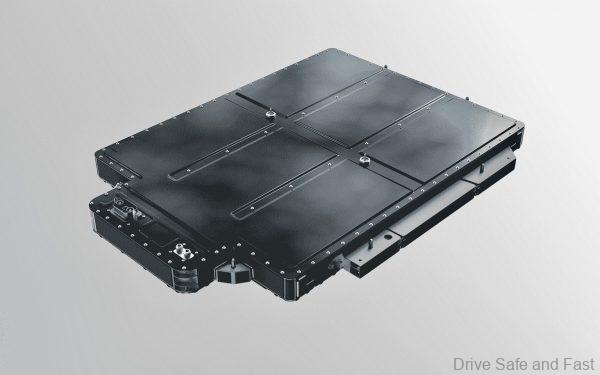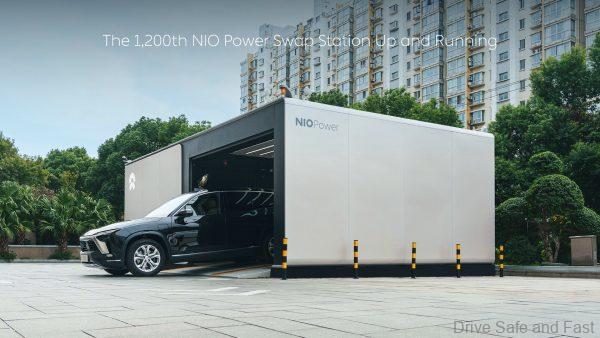There’s a new king emerging in the Chinese auto industry and its name is Nio.
In the space of about 1 week, Chinese battery-swapping pioneers Nio have signed two partnership agreements with major Chinese brands Geely and Changan.

For Changan, there’s a partnership agreement on battery swapping in Chongqing where the two brands will formulate standards, build and share battery swapping network, establish a battery asset management mechanism and co-develop vehicles with battery swapping technology.

For Geely, the partnership will involve co-developing two battery swapping standards for private cars and commercial vehicles, develop and promote battery swapping tech, expand the scale of battery swapping, while also mirroring some of the core partnership agreements as the Nio-Changan agreement. It’s worth noting that Geely has also become heavily invested in its own in-house battery-swapping tech since at least 2021.
Why Work With Nio?
The Chinese government essentially dictates the direction of the industry. A few years ago, brands like BYD had the leg up when China decided EVs would be prioritised. Now, Nio has a leg up as EVs are becoming the norm and universal battery swapping is becoming the next frontier. China’s New Energy Vehicle Industry Development Plan (2021-2035), the Implementation Plan for Further Enhancing the Service Capability of Charging and Swapping Infrastructure, and the Notice on Launching Pilot Program of Swappable New Energy Vehicles are guidelines that the whole industry is now folding into. Like it or not, the Chinese are two steps ahead of the Western world at this point when it comes to mobility and Nio is the next champion in this realm.
Why Battery Swapping?
In the world of alternative (or “new”) energy vehicles, battery electric vehicles (BEVs) have emerged as the industry’s favoured route to decarbonisation. However, battery packs are problematic and so battery-swapping technology has emerged as one of the medium term solutions. Battery swapping enables car manufacturers to sell the EVs much cheaper and then lease out the batteries as a service, allowing a relatively quick pack-swap instead of a lengthy recharge for the customer. The brand that has mastered this battery-swapping technology in China is Nio, and it looks like they’re poised to be the next BYD in the Chinese auto industry.

BYD is an important player mostly because they’re so involved with battery production but it looks like Nio might be the next big important player as the BEV market starts to stabilize and look for solutions to emerging problems. While supplying high quality batteries is important, carmakers are now left with the task of dealing with these batteries once they’re in customer hands. Battery swapping allows the car brands to continue to own and track the batteries but also benefits the customer in many ways.

Firstly, it lowers the cost of the basic vehicle as the battery (typically costing 15-30% of the total manufacturing cost) is leased to the customer as a service. Secondly, battery swapping saves the customer a lot of time as they no longer need to charge their vehicles to recover the full range of the battery. Finally, the customer doesn’t need to worry about the battery’s degradation over time. This removes a potential ownership cost and overall is better for the environment too as nonviable battery packs can be immediately taken out of circulation and dealt with by manufacturers without costing the customer anything.



